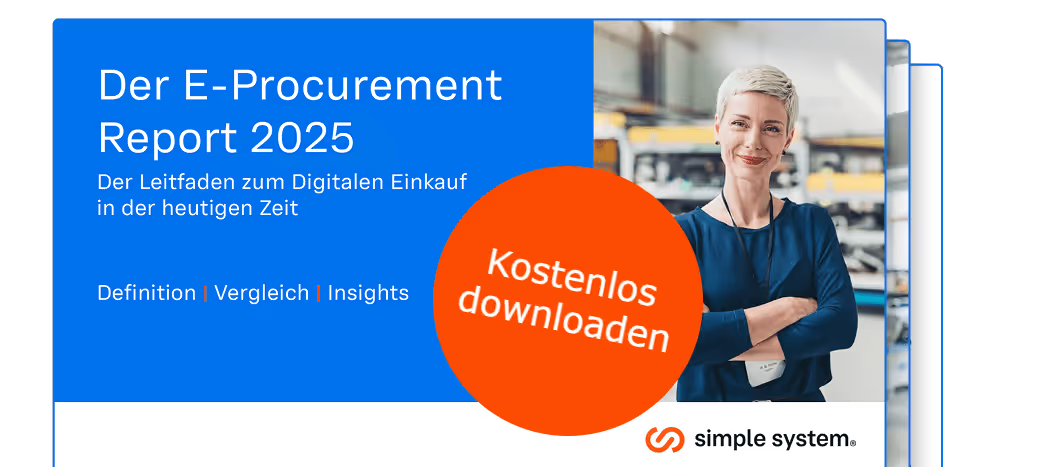Outsourcing indirect purchasing helps companies to reduce costs, optimize processes and focus on core competencies by having external partners take on purchasing tasks. Despite challenges such as data security and dependency, the benefits outweigh a clear and structured implementation.
Outsourcing indirect purchasing: Efficient solutions for purchasing Outsourcing
In an increasingly globalized and digital economy, outsourcing of purchasing processes is becoming increasingly important. Companies are under pressure to optimize their processes, reduce costs and remain competitive at the same time. Strategic purchasing in particular, which is often considered time-consuming and resource-intensive, has great potential for outsourcing.
This article highlights the benefits, challenges and strategic approaches to procurement outsourcing and shows why it makes sense to outsource purchasing.
What is purchasing outsourcing?
Purchasing outsourcing means the outsourcing of specific procurement processes or areas to external service providers. While many companies are familiar with the term, the exact benefits and process are typically unclear. Procurement outsourcing is becoming increasingly significant, particularly when it comes to strategic purchasing, which is not directly related to the core business.
Definition and significance of outsourcing in purchasing
Purchasing outsourcing means that external partners take over parts of purchasing management — from sourcing until the audit. This reduces administrative costs and enables companies to focus on strategic tasks. In view of increasing complexity and growing requirements, this model is becoming increasingly important, particularly in Sectors with high-cost pressure who want to make savings and improve their supply chain.

Difference between direct and indirect purchasing
The key difference between direct and indirect purchasing lies in the type of goods procured and their importance to the company’s value creation.
Direct purchasing refers to materials and components that are directly used in the production process.
This includes raw materials, parts, semifinished goods, and other product-related items needed for manufacturing. These purchases have a direct impact on product quality and business success, which is why they must be carefully planned and managed to ensure optimal outcomes.
Indirect purchasing, on the other hand, covers all goods and services that are not directly involved in production, but are essential for smooth daily operations.
This includes office supplies, IT services, cleaning services, or marketing activities. While direct purchasing typically focuses on cost and quality, indirect procurement emphasizes efficiency in procurement and administration.
Both areas require specialized strategies to achieve their respective goals — whether it’s cost reduction, quality assurance, or process efficiency.
The process of outsourcing in procurement
Outsourcing delegates certain tasks, such as supplier selection, negotiation of conditions or order processing, to external partners. The process begins with an analysis of internal purchasing activities, followed by the selection of a suitable service provider and the implementation of clear processes and KPIs (key performance indicators; also: key figures) to measure success.
What are the advantages of outsourcing in purchasing?
Outsourcing procurement work offers companies a number of attractive advantages:
- Cost savings
- Increasing efficiency
- Access to expertise
- flexibility
- Focus on core competencies
What are the challenges of outsourcing indirect purchasing?
Outsourcing presents a number of challenges that companies must carefully consider. A central challenge is Dependence on the selected purchasing service provider. A wrong decision can lead to significant risks, such as quality problems or supply bottlenecks, which can affect business operations. In addition, working with an external partner requires an uncompromising communication and transparency. If there is a lack of clear coordination processes, misunderstandings can easily arise that reduce the efficiency of purchasing.
Another critical point is data security. Because outsourcing is more strategic Procurement processes often requires access to sensitive corporate data, clear data protection agreements and strict control mechanisms are essential to minimize the risk of data leaks or misuse.
The role of expertise and experience in BPO
A successful outsourcing partner brings Expert knowledge and experience with. This is particularly important in order to make complex purchasing activities efficient and to identify potential issues at an early stage. He should be a real specialist in his field. Without this expertise, there is a risk that savings potential will not be fully exploited. Be sure to pay attention to his experience with outsourcing to successfully outsource the purchasing department.

Important criteria when selecting suppliers
When choosing retailers, Reliability, flexibility, and ability to innovate decisively. A reliable supplier ensures punctual deliveries and consistent quality, which makes the basis more stable business relationships forms. Flexibility is significant in order to be able to react quickly to changes in demand or unexpected disruptions.
The ability to innovate is reflected in the use of modern technologies and optimized processes that increase efficiency and open up new opportunities. An example of efficient Vendor management is simple system, a platform that helps companies optimize the indirect procurement process and simplify supplier relationships.
Risks and legal aspects of outsourcing
With business process outsourcing, companies must consider various risks and legal aspects in order to avoid long-term problems and ensure stable cooperation with service providers.
- Loss of control: Too much dependence can be problematic.
- Drafting of contracts: Clear regulations on obligations, liability, and data protection are essential.
- Legal compliance: Compliance with local and international regulations must be ensured.
How can you measure the success of purchasing outsourcing?
The success of purchasing outsourcing can be assessed using clear, measurable criteria. Key figures (KPIs) such as savings in procurement costs, increased efficiency through shorter procurement cycles and the quality of the goods or services delivered are decisive. Compliance with contract conditions, transparency of processes and satisfaction of internal departments with the service also play an important role.
Regular, thorough evaluations and feedback loops help to identify optimization potential at an early stage and to continuously improve cooperation with the outsourcing partner.
Key figures for evaluating procurement processes
To ensure the efficiency and success of procurement processes To evaluate, specific indicators are essential. They provide a clear overview of performance and optimization potential in the purchasing department:
- Cost savings: the amount of saved costs
- Supplier performance: delivery reliability and quality
- Order cycle time: The time from order to delivery
How can companies strategically optimize purchasing processes?
A strategic optimization of purchasing tasks requires clear goals and an analysis of existing processes ahead. Manual steps should be minimized, data made more transparent and collaboration with suppliers strengthened. Digital tools How simple systems play a key role in strengthening the supply chain and making it profitable.
Simple system's services simplify procure-to-pay (P2P) by Bundle suppliers in a central platform. Companies can search product catalogues, place orders and monitor delivery times in real time — all clearly and efficiently. Analytical features help savings potential to identify and evaluate supplier performance.
With its user-friendly interface, the platform brings clarity to complex processes and supports compliance requirements. This not only makes procurement more efficient, but also more sustainable. The services can be tailored to the specific needs of each company and seamlessly integrated into existing accounting systems.
Synopsis
Outsourcing brings numerous benefits to small and medium-sized as well as large companies, from cost savings to increased efficiency. Despite challenges such as data security and dependence on the service provider, the benefits of systematically planning the process outweigh.
Frequently asked questions
What is operational procurement?
Operational procurement includes the daily processing of orders and deliveries.
How do procurement costs influence strategic purchasing?
Higher costs can limit the scope for targeted investments.
Can you outsource the purchase of products and services?
Yes, non-direct procurement in particular is ideal for outsourcing and offers companies more freedom as they outsource activities.
Which industries should outsource their procurement?
Industries with high-cost pressure and complex procurement requirements — such as automotive or technology companies — benefit in particular from outsourcing and are thus relieved in the long term.
What are the fixed costs of outsourcing?
The costs vary depending on the provider and the scope of the outsourced processes. Platforms such as simple system offer transparent and scalable solutions for companies.

Einkaufen & sparen
Erfahren Sie, wie es geht, in unserem kostenlosen E-Procurement-Report. Jetzt kostenlos und unverbindlich herunterladen.
Jetzt lesen








